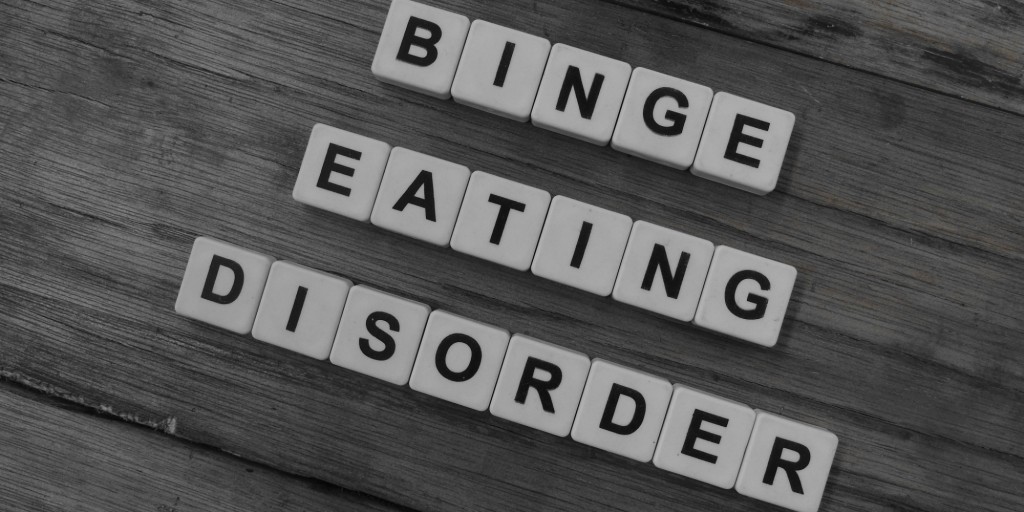
It is not normal to feel genuine shame, guilt, or embarrassment about your eating habits. If you find yourself feeling compelled to overeat repeatedly, you may benefit from binge eating disorder treatment. Today, we will discuss what that treatment looks like for different people and how you can find the help you need to recover.
Table of Contents
Veterans With Binge Eating Disorder

Alongside conditions like anorexia and bulimia, binge eating disorder is one of the more prominent eating disorders. Veterans in particular are more susceptible to binge eating disorder than other people.
In fact, veterans are diagnosed with all types of eating disorders at higher rates than the civilian population. One study found that as many as 19 percent of female veterans and 13 percent of male veterans meet the diagnostic criteria for an eating disorder. Comparatively, only about nine percent of the general U.S. population receives an eating disorder diagnosis in their lifetimes.
The increased risk of eating disorders in veterans occurs for several possible reasons. For instance, the fitness and weight requirements for the military can pressure people into feeling like they need to lose weight. Sometimes, these feelings continue even after their service ends. In this way, military weigh-ins can accidentally create long-term body image issues and may cause someone to need binge eating disorder treatment.
In addition, the challenges of military life during service can also put someone through food-related trauma. For example, service members may occasionally have to go days without food. Their experience with food instability can follow them back home. They may feel compelled to eat as much as they can in fear of losing access to it later.
Combat exposure, military sexual trauma, and other high-stress situations can also contribute to someone’s binge eating episodes. No matter the underlying reason, however, every veteran who regularly experiences them should consider seeking professional binge eating disorder treatment.
When to Get Binge Eating Disorder Treatment
It is important to keep in mind that binge eating disorder is not the type of condition to go away on its own. Anyone who meets the diagnostic criteria for an eating disorder should likely consider seeking professional help.
Furthermore, remember that there is no shame in doing so. Binge eating disorder treatment programs exist only to help as many people as possible. No one should have to live with the constant stress of encountering things that trigger binge eating episodes. The support of medical professionals can help you reclaim your life and live it the way you choose.
That said, if you still are not sure whether you need professional treatment, consider the following signs of concerning eating behavior:
- Eating until uncomfortably full
- Eating much more quickly than usual
- Eating large amounts of food even when not physically hungry
- Eating alone out of embarrassment or shame of the amount of food
- Feeling overcome with guilt, disgust, or depression after overeating
Individuals who exhibit at least three of the above symptoms are likely experiencing a binge eating episode. If such episodes are recurrent and persistent in nature, they would likely benefit from professional binge eating disorder treatment.
Binge Eating Disorder Treatment Options
Treating binge eating disorder may require a multifaceted approach to maximize someone’s recovery potential. All people with binge eating disorder have their own unique experience with it. As a result, they may need to try a few different treatment modalities to find which work best for them.
Combining numerous effective treatment options often makes long-term success more likely. Below, we’ve outlined a few of the most common treatment options for binge eating disorder. Though far from an exhaustive list, these approaches to treatment have proven to be among the most effective at helping eating disorders.
Eating Disorder Support Groups
In some ways, the best treatment of binge eating disorder starts with the environment closest to someone. Informed, supportive family members and friends can have a massive impact on their recovery.
In the case of veterans, some may not have anyone they feel they can talk to about their military experiences. Fortunately, resources exist to help them connect with people who can. We recommend looking into veteran-specific support groups to receive the deepest level of understanding with other people.
During binge eating disorder treatment, general support can also take the form of nutritional consultations. This type of educational investment may help someone identify their trigger foods or situations. Knowing what makes them enter a binge eating episode can help medical professionals design a more personalized treatment plan later on.
On that note, keep in mind that support groups should not be used as a substitute for professional care. They provide excellent supplemental support, but they should not be relied upon by themselves. Professional binge eating disorder treatment offers a much more comprehensive approach to help people recover.
Psychotherapy for Binge Eating

Also known as talk therapy, psychotherapy often makes up the bulk of someone’s treatment plan. Two of the most common and effective psychotherapies used in binge eating disorder treatment include cognitive behavioral therapy (CBT) and interpersonal psychotherapy (IPT).
Cognitive behavioral therapy focuses on the relationships between thoughts, feelings, and behaviors. It argues that they feed into each other, and by changing one, people can influence the others in turn. CBT is a valuable component of treatment because it helps individuals address unrealistic beliefs about food.
On the other hand, interpersonal psychotherapy emphasizes the importance of how someone relates to other people. It believes that many problems can be linked back to relationships in some form, be it through conflict, grief, or general life changes. IPT benefits those with eating disorders because it teaches them better ways to handle issues like loss and transition.
While CBT and IPT are two of the most common therapies used in binge eating disorder treatment, they are far from the only options. Even if they do not work well for someone, they can explore numerous other types of therapy to find what best suits their needs.
Binge Eating Disorder Treatment for Veterans
If you are a veteran in need of binge eating disorder treatment, consider Heroes’ Mile. We are a mental health treatment facility created for veterans by veterans. Our staff members as well as patients’ fellow peers understand the unique challenges faced during military life. These connections allow us to promote recovery through common ground.
To learn more about our binge eating disorder treatment programs, contact our admissions specialists today. You can reach a member of our team at 888-838-6692 or by filling out a confidential contact form. We are always happy to answer any questions or concerns you have.
Recovering from binge eating disorder is possible with the right support. At Heroes’ Mile, we can help you repair your relationship with food and regain control of your life.
The post Binge Eating Disorder Treatment for Florida Veterans appeared first on Heroes’ Mile Veterans Recovery Center.
Source
Original Author: Heroes’ Mile

